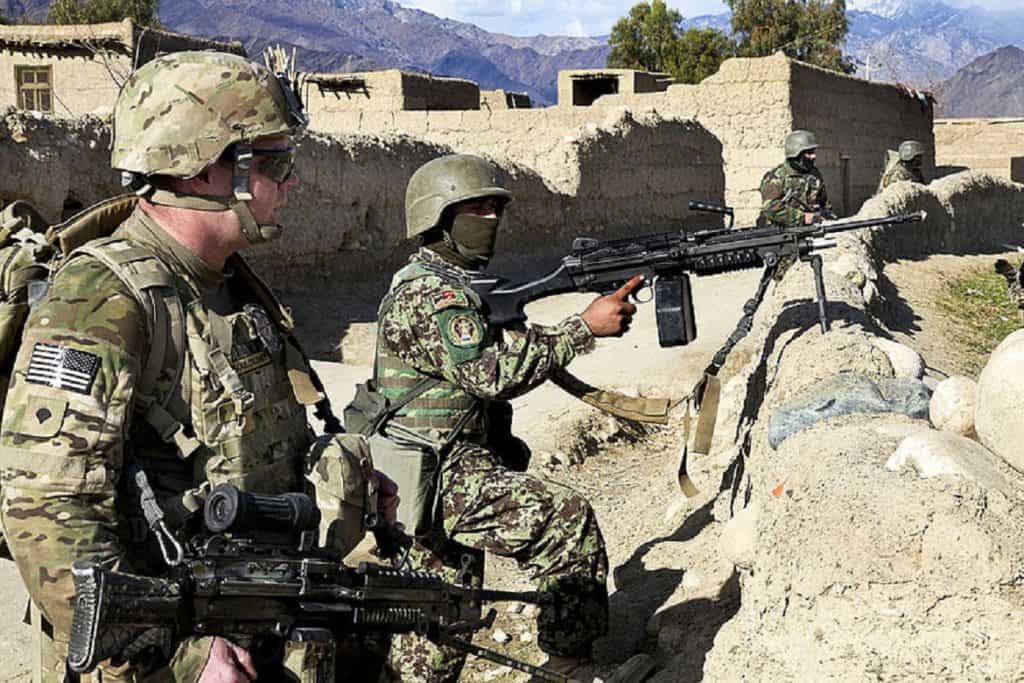By Denis Korkodinov
Without US support, the government of Afghanistan and its armed forces will not be able to retain their power. This was officially recognized by the head of the official Kabul Ashraf Ghani, speaking to reporters in January 2018. This statement is relevant at the present time.
Meanwhile, the White House administration seriously intends to limit its military presence in Afghanistan, giving preference to methods of political settlement of the conflict and, if possible, distancing itself from participation in military clashes with the Taliban.
This alignment allows the leaders of the Taliban movement to feel extremely relaxed, without fear that they might lose their influence in the region. However, based on the confused configuration of warring parties in Afghanistan, it is almost impossible that the efforts of the United States and Russia to reconcile the parties can have a positive result.
The main problem for Kabul is not so much the impossibility of waging a military campaign. In fact, With the support of Washington, the Afghan National Army managed to win a number of significant victories over the Taliban. At the same time, the armed forces of Afghanistan received very substantial funding from the US. About $ 4 billion was allocated annually for the maintenance of the Afghan army. The main reason Ashraf Ghani and his army are losing power is the lack of a leader capable of mobilizing Afghan society.
The White House administration and its allies in the international arena believed that a national leader could emerge in Afghanistan who could reconcile the warring parties through his authority and control levers. Instead, in the country, both Khalidp Karzai and Ashraf Ghani, widely adopted the practice of divide and conquer and the divisions began to prevail in almost all spheres of life. This practice has turned into a “war of all against all”, when the formal leader of Afghanistan has no opportunities to ensure order and stability.
Because of this, since 2001, the hallmark of all the governments of Afghanistan has been their weakness and absolute dependence on foreign support, primarily from the United States.
At present, the development of the Afghan conflict is entirely influenced by the Pakistan-India confrontation, as well as tensions between Washington and Tehran, relations between Saudi Arabia and Israel, China and Pakistan, Russia and the United States.
At the same time, Afghanistan is rapidly losing its state identity, turning into an arena for the confrontation of foreign states. In turn, the dubious nature of Afghan sovereignty is an additional obstacle to overcoming the crisis.
Washington has achieved practically nothing in Afghanistan for many years of its military participation in this country. The United States Special Representative for Afghanistan, Zalmay Khalilzad, despite his populist statements, is rejected by both the official Kabul and the Taliban, in connection with which his mediation mission turned out to be completely a failure. In addition, Zalmay Khalilzad is treated with great suspicion in Tehran, Islamabad and Moscow. In other words, in the international arena, the US special envoy for Afghanistan has zero credibility that it is not up to him to negotiate with someone.
Russia is trying to use the “Afghan file” in its own interests in the struggle against the “Islamic State.” To this end, she organized a series of meetings with the leadership of Kabul, the Taliban and international mediators. However, representatives of the Taliban movement, despite Russian pressure, still refuse to conclude an armistice with the government of Ashraf Ghani, which makes Moscow’s mediation ineffective.
Thus, the international community is powerless to resolve the Afghan conflict until the Afghans themselves will finally agree to secure peace in their country. This is an extremely difficult task, but it is quite possible.
(The opinions expressed in this article are solely those of the author and do not necessarily reflect the views of World Geostrategic Insights).







